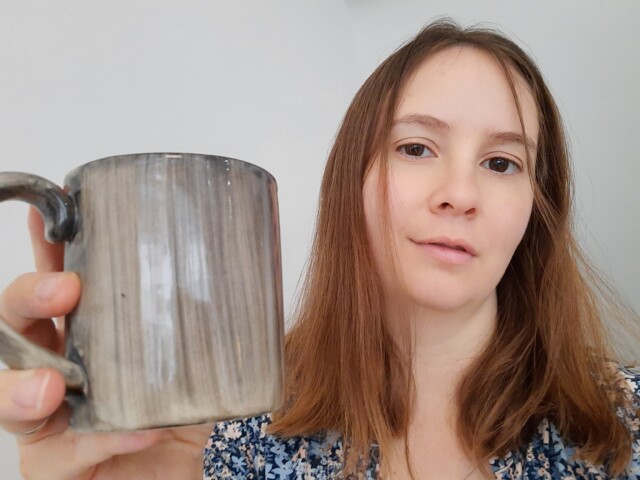ENERGY bills have been frozen for two years – but millions will still struggle to pay for rising gas and electricity costs.
On September 8, Liz Truss announced that energy bills for the typical family will be held at £2,500 a year from October 1.
SUN reporter Harriet Cooke boiled water on the hob instead of using a kettle
This is up from the current price cap of £1,971 – but bills had been destined to rise to £3,549 a year.
Households do still get the £400 energy bill rebate and your bill won’t be capped at £2,500, as you pay for the energy you use.
And with the price of pretty much everything still going up, including food and households essentials, millions are still going to be on a mission to cut energy costs.
I’m on a mission to cut costs for my family, starting with my daily cups of tea – which are all too frequent given that I sit next to my kettle while working from home.
It doesn’t get much of a break from my five-cups-a-day habit.
I don’t plan to drink less tea, but I do want to reduce the cost of making them.
Last week I tried to do this by using my microwave instead of the kettle, which spectacularly failed when it took me a total of 11 minutes to get the water hot enough.
This time I’m eyeing up my gas hob to see if it can do the job and save me some pennies.
I’m told gas is much cheaper than electricity but can it really make much difference – given that my kettle heats a mug of water for just 1.2p a mug?
I’ve got a dinky little saucepan perfect for the task of heating my one mug of water.
To test, I covered it with a lid to speed up heating and after a couple of checks found the water angrily boiling inside after three minutes of the hob being turned up to the max.
Luckily experts at the business comparison service Bionic have a handy guide on how to work out the cost of using various appliances.
The first step is to know what power your appliance is.
Plug-in electrical appliances should have their wattage printed on them or in the instruction pamphlet, although that doesn’t help with a gas hob.
Luckily I’ve managed to dig out the dusty handbook for my hob and discovered its wattage is 1.95kw or 1950w.
I have to divide the wattage by 1,000 to get its rate of energy use in kilowatt-hours – basically how much the appliance uses per hour. So for my hob that will be 1.95kwh.
I then need to know how much I’m paying for gas. I pay about the average, which is about 7p for one kwh of gas. Leccy is much more – 28p a kwh!
Goodness knows what it’ll go up by next month – but it won’t be as bad as it would have been had the government not stepped in this week.
So that means I’m paying 7p for every hour or 0.1p a minute for gas.
Nice to know that my three minutes of heating amounted to just 0.3p!
Using the same calculations, my 3,000-watt kettle would cost 84p to run for a whole hour, or 1.4p a minute, or 0.02p a second.
It seems like a no-brainer way to save money and not much of a faff to fill up a pan rather than flicking on the kettle.
Harriet previously compared boiling water in the microwave over the kettle.
And Lynsey Hope reported on the best air fryers.
Did you miss our previous article…
https://hellofaread.com/money/from-a-hiding-cockapoo-to-a-grieving-parrot-your-pet-queries-answered/








